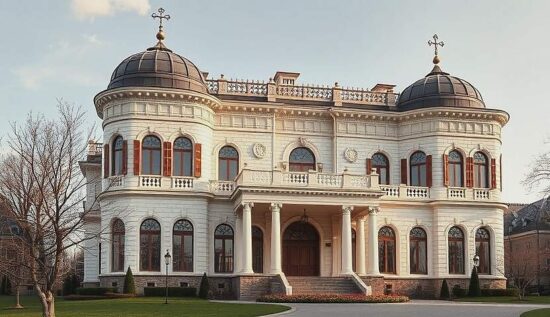Moscow’s luxury real estate market has reached a level comparable to that of London, according to Bloomberg. The city’s wealthy residents are increasingly purchasing high-end properties to protect their wealth from inflation and economic uncertainty. The majority of buyers are entrepreneurs, top managers and representatives from the IT, show business and sports sectors.
Experts, cited by Bloomberg, explain that it is becoming increasingly difficult for Russian citizens to invest in foreign real estate due to the existing restrictions. As a result, they are redirecting their investments to the Moscow market. Some buyers view the purchase of properties in Moscow as a way to preserve their wealth against inflation.
According to the NF Group, the sales of Moscow apartments priced over 1.95 million rubles per square meter increased by almost 40% last year. The overall property prices in Moscow rose by 21%, putting the city on the same price level as Paris and London.
The influx of investments in high-end real estate is helping Moscow to overcome the decline seen on other markets, such as London or Hong Kong. Typical buyers of luxury properties in Moscow are entrepreneurs and top managers in the age range of 40 to 50, as well as representatives of the IT sector, show business and sports.
Although Russian investors still have an interest in properties in popular destinations like Bali and Thailand, their engagement in foreign markets has significantly decreased. This shows a trend in which more capital is flowing into the domestic market. While the real estate boom in Moscow seems to be ongoing, a glance at other markets reveals that not every boom is sustainable.
A notable example is the decline in demand for real estate in Dubai, a traditionally popular destination for Russian investors. In 2022, Russian buyers held the top spot on the Dubai real estate market. Just a year later, the trend weakened and Russian demand dropped by 24%. This signals a change on the global markets.
This decline in Dubai is not an isolated phenomenon, but rather a sign of a broader reallocation of investments. Due to the geopolitical situation and international sanctions, many Russian investors have shifted their preferences – from foreign real estate to domestic markets like Moscow, where luxury property prices continue to rise. For many, the focus has shifted away from global real estate hubs to a more stable, national investment landscape.
The case of Dubai should serve as a warning: the real estate boom in popular cities is not always sustainable. Market fluctuations, geopolitical uncertainties and economic instability can quickly turn the tide of demand. For buyers and investors, this means that both a long-term market analysis and careful consideration of the political and economic framework are necessary to avoid becoming a victim of sudden market changes.





